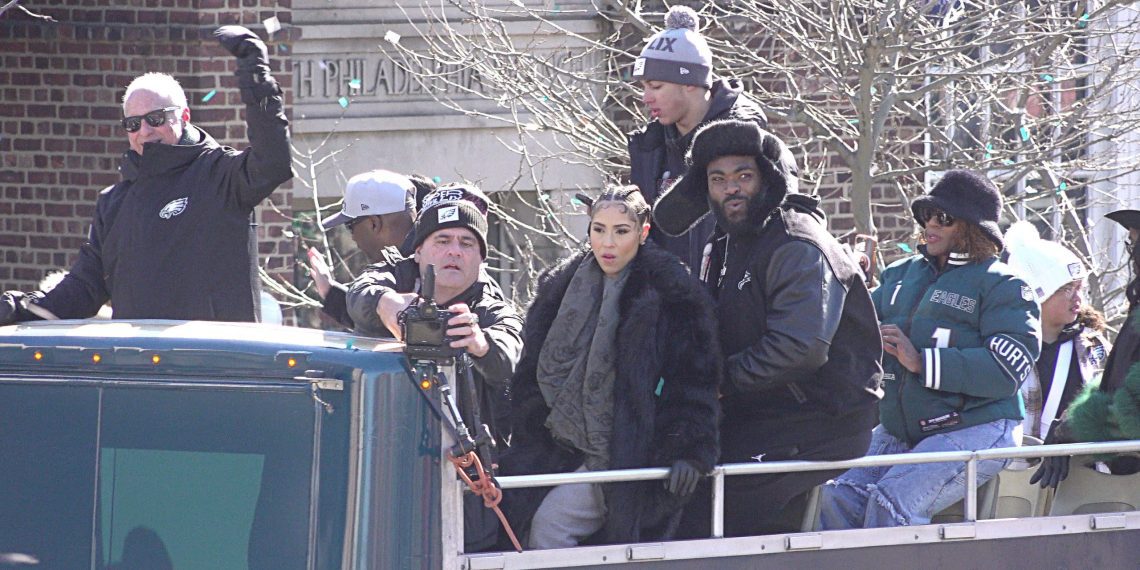Michigan’s Uphill Battle Against Cheating Allegations
Michigan, once a beacon of college football excellence, now finds itself embroiled in a never-ending saga of cheating scandals. For nearly two years, the NCAA has been scrutinizing Michigan over allegations of sign-stealing, tarnishing the program’s reputation. Despite vehement denials, the stain of suspicion lingers, shadowing every mention of the Wolverines. The mere utterance of Michigan prompts references to the scandal, as exemplified by radio personality Howard Eskin’s swift allusion to cheating upon hearing the school’s name from an alumnus.
Two-time Super Bowl Champion Brandon Graham, a staunch Michigan supporter, recently found himself defending his alma mater against accusations of cheating on the Howard Eskin Show. Eskin’s pointed remark about the alleged cheating prompted Graham to vehemently rebut the insinuation, asserting, “We do no cheating.” However, the narrative took a disconcerting turn when NCAA investigations uncovered the misdeeds of Connor Stalions, a member of Jim Harbaugh’s coaching staff at Michigan.
Connor Stalions’ Deceptive Tactics Unveiled
Connor Stalions, a key figure within the Michigan coaching staff, was caught red-handed by the NCAA for a sophisticated sign-stealing operation. Stalions purchased tickets to over 30 games in his name, spanning 10 different Big Ten schools, to covertly decipher the hand signals of opposing coaches. This elaborate scheme, carried out over three years, aimed to gain an unfair advantage in future matchups. Moreover, the NCAA investigation revealed that Stalions enlisted friends and family to attend games as part of his clandestine operation.
During the NCAA’s inquiry, Stalions conveniently pleaded lapses in memory, claiming he “did not recall” attending specific games—a feeble attempt to evade accountability for his actions. The absurdity of denying involvement in 30 games over a three-year period underscores the brazenness of his deceitful tactics. Stalions’ lack of remorse or accountability raises questions about the moral compass guiding Michigan’s coaching staff during the scandal.
Call for Justice: Former Chargers Linebacker Advocates NCAA Action
Former Ohio State standout Joshua Perry has voiced a compelling plea for NCAA intervention in the Michigan sign-stealing scandal. Perry, reflecting on the potential repercussions of Michigan’s transgressions, emphasized the need for accountability, even if it means imposing penalties on current players for past indiscretions. Suggesting scholarship reductions and financial fines, Perry underscores the gravity of the situation and the imperative for ethical rectitude in collegiate athletics.
While the NCAA investigation is ongoing, a crucial revelation emerged: there was no direct link between Stalions’ actions and then-Michigan head coach Jim Harbaugh. Harbaugh’s unequivocal stance on integrity—emphasizing honesty, fairness, and responsibility—underscores the values he upholds within his program. However, as Perry rightly asserts, apologies alone cannot absolve Michigan of potential guilt; substantive consequences must follow if wrongdoing is substantiated.
As Michigan navigates the turbulent waters of scandal, uncertainties loom over the program’s future. Whether exonerated or found culpable, the Wolverines face a daunting battle to safeguard their reputation and credibility. The relentless scrutiny and skepticism surrounding Michigan echo a timeless truth: the road to redemption is paved with accountability, transparency, and steadfast integrity. Just as a thief evades culpability, Michigan’s defiance in the face of allegations mirrors a reluctance to acknowledge wrongdoing until confronted with irrefutable evidence.









